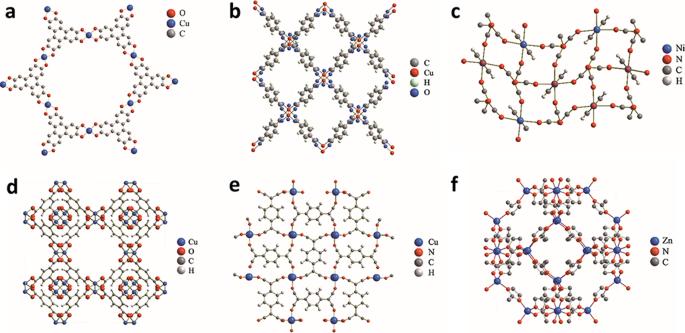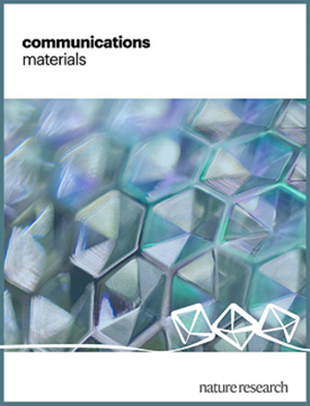用于太阳能驱动海水淡化的金属有机框架
IF 7.5
Q1 MATERIALS SCIENCE, MULTIDISCIPLINARY
引用次数: 0
摘要
对淡水需求的不断增长和能源短缺的挑战激发了人们对太阳能界面水蒸发技术的兴趣,该技术利用太阳能生产清洁水。要实现该技术的高性能,就必须开发高效光热材料,优化热管理,并解决盐沉积问题,以确保设备的使用寿命。金属有机框架(MOF)具有大比表面积和高孔隙率,是各种水处理应用的理想材料。近年来,MOFs 已被广泛用于太阳能驱动的海水淡化。在此,我们回顾了 MOFs 薄膜、复合材料和基于 MOFs 的衍生物功能化方面的最新进展,以及在防止盐沉积的同时利用 MOFs 实现高效海水淡化的策略。此外,还讨论了集污染物降解和发电于一体的海水淡化系统,这进一步拓展了太阳能驱动的界面水蒸发海水淡化技术的应用范围。金属有机框架(MOFs)因其高孔隙率而被广泛应用于各种功能性领域。本文讨论了 MOFs 在太阳能驱动海水淡化中的应用,包括材料、盐沉积问题以及将海水淡化与污染物降解和发电相结合的系统。本文章由计算机程序翻译,如有差异,请以英文原文为准。

Metal-organic frameworks for solar-driven desalination
The rising demand for freshwater and the challenge of energy scarcity have fueled interest in solar interfacial water evaporation technology, which harnesses solar energy to produce clean water. Attaining high performance with this technology necessitates the development of highly efficient photothermal materials, heat management optimization, and the resolution of salt deposition issues to ensure equipment longevity. Metal-organic frameworks (MOFs) possess large specific surface areas and high porosity, making them ideal for various water treatment applications. In recent years, MOFs have been extensively employed for solar-driven desalination. Here, we review recent developments in the functionalization of MOFs thin films, composites and MOFs-based derivatives and strategies for achieving efficient seawater desalination with MOFs while preventing salt deposition. Furthermore, desalination systems that integrate pollutant degradation and power generation are discussed, which further expand the application scenarios of solar-driven interfacial water evaporation desalination technologies. Metal-organic frameworks (MOFs) are used in a range of functional applications, often due to their high porosity. Here, the use of MOFs in solar-powered desalination is discussed, covering the materials, the issue of salt deposition, and systems that combine desalination with pollutant degradation and power generation.
求助全文
通过发布文献求助,成功后即可免费获取论文全文。
去求助
来源期刊

Communications Materials
MATERIALS SCIENCE, MULTIDISCIPLINARY-
CiteScore
12.10
自引率
1.30%
发文量
85
审稿时长
17 weeks
期刊介绍:
Communications Materials, a selective open access journal within Nature Portfolio, is dedicated to publishing top-tier research, reviews, and commentary across all facets of materials science. The journal showcases significant advancements in specialized research areas, encompassing both fundamental and applied studies. Serving as an open access option for materials sciences, Communications Materials applies less stringent criteria for impact and significance compared to Nature-branded journals, including Nature Communications.
 求助内容:
求助内容: 应助结果提醒方式:
应助结果提醒方式:


